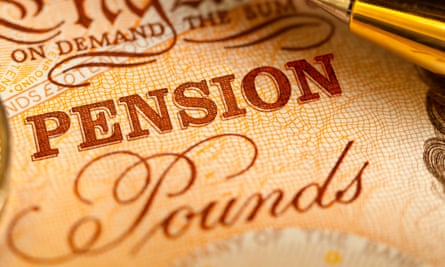Parents earning more than £50,000 a year could gain thousands of pounds in child benefit by redirecting some of their earnings into a pension, figures issued this week show.
Some who are fortunate enough to be able to stash hundreds of pounds away each month could end up being £120,000 better off in retirement as a result, according to calculations produced by Quilter, a financial advice and investment firm.
The figures relate to the UK government’s high income child benefit charge, which was introduced in 2013.
Child benefit is not means-tested and the charge is the government’s way of reducing the amount that is paid to high earners. It means some of the state payment is clawed back via the tax system if either you or your partner earn more than £50,000.
 View image in fullscreenChild benefit is not means-tested. Photograph: Ian Jones/Alamy
View image in fullscreenChild benefit is not means-tested. Photograph: Ian Jones/Alamy
Changes that took effect last month will result in morebasic-rate taxpayers being caught in the child benefit tax charge net. But for many of those who can afford it, there is a perfectly legitimate way they can reduce – or even eliminate – their liability while at the same time boosting their retirement funds.
Child benefit is currently paid at £21.15 a week for the eldest or only child, then £14 a week for each additional child, and is worth £1,828 a year for a family with two children.
Dubbed by some as a “tax on children,” the charge has resulted in large numbers of parents repaying some or all of the benefit.
Some families have been hit with unexpected demands from the taxman for thousands of pounds of child benefit that it says they should not have received.
The government collected a total of just over £2.5bn from families through the tax charge between 2013 and 2019, and has saved an additional £4.3bn because several hundred thousand families have opted out of receiving child benefit, according to figures issued in February by the firm NFU Mutual.
The charge is 1% of the amount of child benefit for each £100 of income on a sliding scale between £50,000 and £60,000. For those earning more than £60,000 the charge is 100% – in effect, they receive no child benefit.
Over the years, wage inflation has gradually pushed more people over the £50,000 child benefit tax charge threshold. In the March budget it was confirmed that, as of 6 April this year, higher-rate tax in England and Wales would start at £50,271 – meaning that for the first time some basic-rate taxpayers will face the charge.
Those affected have a choice: carry on receiving child benefit but pay extra tax through the self-assessment system or give up the benefit and don’t pay.
Steps you can take to cut the bill
The child benefit tax charge is based on your adjusted net income. This is your total taxable income – your basic salary plus any benefits you get from your job, rental income and so on, minus things such as pension contributions and gift-aided donations to charity.
This means that if you reduce your adjusted net income below £60,000 you can cut the amount you have to repay through the charge.
The most obvious way to do so is to pay more into your pension if you can.
Any contributions made into a company or personal pension scheme will reduce your final adjusted net income. For example, you could pay additional voluntary contributions into your occupational scheme.
Quilter gives the example of a couple with two young children where one parent earns £59,000. However, everyone’s circumstances are different and the firm’s figures involve a number of assumptions.
As the income of the parent in this scenario is £9,000 over the threshold, they face a tax charge of 90% of £1,828, which is £1,645. That means the overall value of the family’s child benefit has been slashed to £183 a year.
 View image in fullscreenAny contributions made into a company or personal pension scheme will reduce your final adjusted net income. Photograph: Stocknshares/Getty Images/iStockphoto
View image in fullscreenAny contributions made into a company or personal pension scheme will reduce your final adjusted net income. Photograph: Stocknshares/Getty Images/iStockphoto
But if that parent increased their pension contributions by £467 a month, this would reduce their adjusted net income to £50,500. This is only just above the tax charge threshold and would take their tax charge down to only £91.
The family could gain an extra £1,553 a year in this way.
For this family, where the children are aged six and four, over the 12 years when the two payments are still available the total extra benefit could be £18,600, Quilter said. These numbers are based on child benefit payments staying at its current level – if it increases by 2% a year, say, the total gain would be about £21,000.
Another way to reduce your adjusted net income is to exchange more of your salary for childcare vouchers
If the person earning £59,000 is aged 40 and has already built up a pension pot of £100,000 to which they already contribute £100 a month, the long-term result of these extra contributions would be to increase their savings by more than £122,000 by the time they reach 65, assuming “modest” investment growth of 2% after charges and inflation, Quilter says.
Another way to reduce your adjusted net income is to exchange more of your salary for childcare vouchers if your employer still offers such a scheme.
Under the childcare vouchers programme, which is closed to new applicants, you can take up to £55 a week of your wages as vouchers, on which you do not pay tax or national insurance. This will reduce your taxable income.
If you joined before 4 October 2018, you can usually keep receiving vouchers as long as you stay with the same employer (and it continues to run the scheme), and you do not take an unpaid career break longer than a year.





